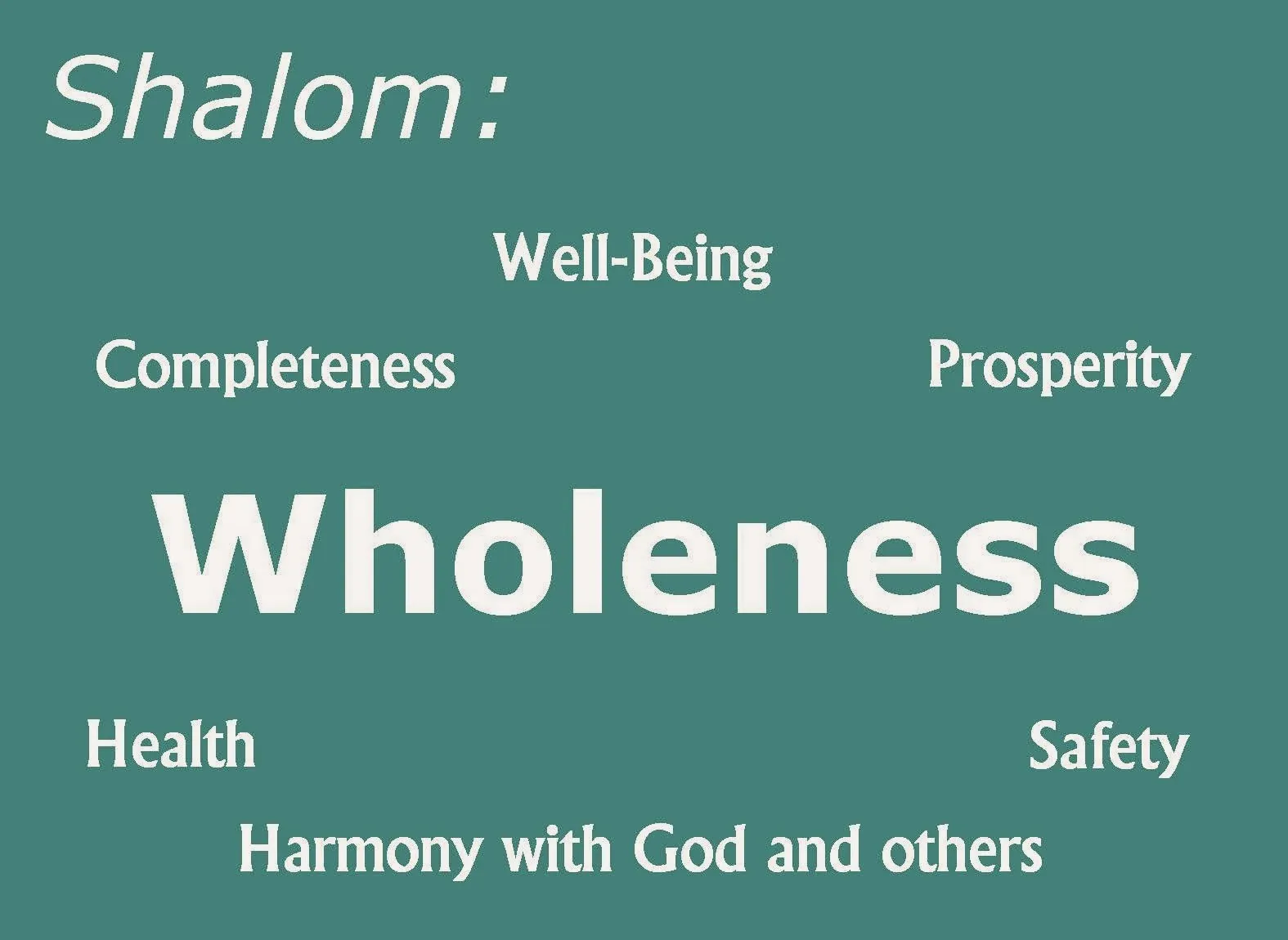Discovering the True Meaning of “Shalom” in Christianity: A Youth Pastor’s Insightful Guide
If you’re curious about the meaning of “shalom” and its significance in the Christian faith, then you’ve come to the right place. As a youth pastor, I’ve encountered many questions about this word and its various interpretations. In this article, we’ll dive into the origins of the word, its history, different meanings, and how it applies in our daily lives. Whether you’re a seasoned Christian or just starting to explore the faith, understanding “shalom” can enrich your relationship with God and improve your interactions with others. So, let’s get started and learn more about this important term!
An Introduction to the Term “Shalom”
Shalom is a Hebrew word that has deep meaning and significance in the Christian faith. At its core, shalom means peace or wholeness, but it encompasses so much more than just those two words.

In Christianity, shalom refers to a sense of harmony with God and all of creation. It’s about experiencing the fullness of life that comes from being in right relationship with God and others. This includes physical well-being as well as spiritual health.
But shalom isn’t just something we passively receive; it’s also something we actively pursue. As Christians, we’re called to work towards bringing about this state of peace in our lives and communities.

This pursuit involves seeking justice for all people, caring for the environment around us, promoting reconciliation between individuals and groups where there has been conflict or division, showing compassion towards those who are hurting or marginalized, and striving to live out our faith authentically each day.
Ultimately though, true shalom can only come through a personal relationship with Jesus Christ. He is the Prince of Peace who came to bring hope and healing to broken world – both now on earth as well as eternally in heaven.
So if you’re looking to learn more about Christianity or deepen your understanding of what it means to follow Christ – take some time today reflect on what “shalom” truly means for you personally!
The origin and history of “Shalom”
Shalom is a Hebrew word that means peace, harmony, and completeness. Its origin can be traced back to ancient times when the Israelites used it as a greeting and farewell. In the Bible, shalom is often used in reference to God’s blessings for his people.
The concept of shalom goes beyond just an absence of conflict or war. It encompasses a deep sense of well-being and wholeness in all areas of life – physical, emotional, spiritual, and social.
In Christianity, shalom takes on even greater significance as it points to Jesus Christ who is called the “Prince of Peace.” Through his death on the cross and resurrection from the dead, he offers true shalom – reconciliation with God and forgiveness for sins.
As Christians strive to live out this idea of shalom in their daily lives by showing love towards others they bring about positive change not only within themselves but also within their communities too.
So let us embrace this beautiful word – Shalom – which represents so much more than just peace; unity amongst ourselves through our faith will create an amazing atmosphere filled with nothing but joyous tranquility!
The various meanings and interpretations of “Shalom”
Shalom is a Hebrew word that holds deep meaning in both Judaism and Christianity. Its literal translation is “peace,” but its significance goes far beyond this simple definition.
In Jewish tradition, shalom represents wholeness, completeness, and harmony. It encompasses not only peace between individuals but also between people and God. Shalom is the ultimate state of being where all things are in balance and alignment.

For Christians, shalom takes on an even deeper meaning as it signifies the peace that comes from knowing Jesus Christ as their savior. It represents the restoration of relationship with God through faith in Christ’s sacrifice on the cross.
However, shalom does not just refer to an inner state of peace or reconciliation with God; it also calls for action towards building peace within communities and promoting justice for all people.
As a youth pastor at a Christian church, I believe it’s important to understand the various meanings behind this powerful word so we can better live out its principles in our daily lives. By seeking to embody shalom through our actions- treating others with kindness and respect- we can create more peaceful communities around us while living out our faith authentically.
So next time you hear someone say “shalom,” remember that there’s much more depth to this seemingly simple word than meets the eye – let it inspire you towards greater love for your fellow human beings!
“Shalom” in the context of Christianity
Shalom is a Hebrew word commonly used in the context of Christianity to describe a state of peace, wholeness, and well-being. In its essence, shalom is more than just an absence of conflict or chaos; it represents harmony between God, humanity, and creation.
As Christians seek to understand the meaning of shalom in their daily lives, they must also recognize that it encompasses much more than just personal peace. True shalom involves social justice and reconciliation with others who have been marginalized or oppressed.
In fact, one could argue that Jesus’ entire ministry was centered on bringing about shalom through his teachings and actions. He healed the sick and fed the hungry while also challenging societal norms that perpetuated injustice.
As followers of Christ today continue this work towards achieving true shalom in their communities, they must remember that it requires both individual transformation as well as systemic change. It involves listening to those whose voices have been silenced and advocating for policies that promote equality for all.
Ultimately though, our efforts towards achieving shalom will always fall short without reliance on God’s grace through prayerful surrendering ourselves to His guidance. Only then can we fully experience true peace – not only within ourselves but throughout all aspects of society – from local neighborhoods up until nations worldwide – promoting love over hate consistently across every corner possible!
The importance of “Shalom” in daily life and interactions
Shalom is a Hebrew word that carries a deep meaning of peace, wholeness, and completeness. In Christianity, it is often used as a greeting and blessing. However, shalom goes beyond just a simple greeting; it encompasses the essence of God’s love for his people.

In our daily lives and interactions with others, practicing shalom means actively seeking to bring peace and harmony into every situation we encounter. It involves showing kindness towards others even in difficult circumstances while forgiving those who have wronged us.
The importance of shalom cannot be overstated. When we practice shalom in our interactions with others, we create an environment where love can flourish instead of hostility or bitterness. We become agents of change who seek to make the world around us a better place by spreading God’s love through peaceful actions.
As Christians, we are called to be peacemakers (Matthew 5:9), bringing reconciliation wherever there is division or conflict. This requires active engagement with those around us on both personal and societal levels – being willing to listen without judgment or bias while also advocating for justice when needed.
In conclusion, incorporating the concept of shalom into our daily lives not only benefits ourselves but also those around us by creating an atmosphere where everyone can thrive in peace together – regardless if they are Christian or not!
Conclusion
The importance of the term “shalom” cannot be overstated. From its ancient roots to its various interpretations throughout history and in Christianity today, it is a word with many meanings and implications that can help guide how we interact with each other on a daily basis. If you’d like to learn more about understanding “shalom” from a Christian perspective, then I encourage you to reach out for further guidance and resources at our church!












